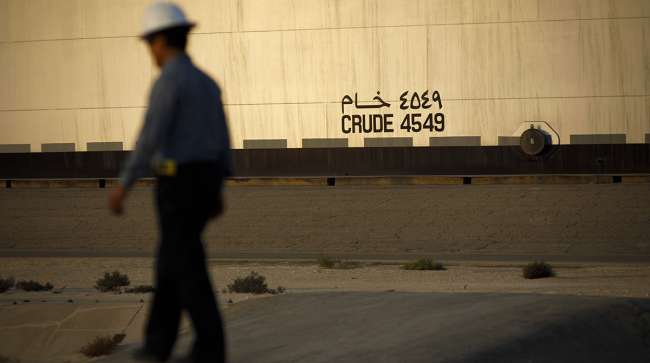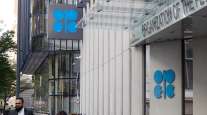OPEC+ Sticks to Supply Plan as Trump Seeks Oil Price Cut

[Stay on top of transportation news: Get TTNews in your inbox.]
OPEC+ didn’t make any changes to its existing oil production plans at a review meeting Feb. 3, even as President Donald Trump called on the group to lower crude prices.
A panel of key members led by Saudi Arabia and Russia maintained plans to keep a lid on crude supplies for the rest of this quarter, and then gradually restore output in monthly stages from April, according to a statement. The coalition has been withholding barrels for more than two years to prevent a surplus, and has already delayed its production revival three times in a bid to shore up prices.
“Despite some doubts, market fundamentals remain strong, as indicators of economic growth recovery are showing in several regions,” the Energy Ministry of OPEC member Algeria said in a statement. “We expect a greater recovery in demand for oil starting next April after a seasonal slowdown during the first three months of the year.”
There was no discussion of Trump’s request for more oil, delegates said. Instead, the meeting of the Joint Ministerial Monitoring Committee focused on member countries’ compliance with existing output cuts and compensation for past over-production, delegates said.
It also changed the composition of the external sources OPEC+ uses to monitor members’ production, removing two of the existing seven — Rystad Energy AS and the U.S. government’s Energy Information Administration — and replacing them with consultants Kpler, OilX and ESAI.
The meeting indicates that the Organization of Petroleum Exporting Countries and its allies are in no hurry to placate Trump, who twice last week urged the producers to lower the cost of fuel. The cartel remains wary of inundating global markets as demand falters in top consumer China, while alternative supplies across the Americas are booming.
The new president has already made his presence felt in oil markets, with the announcement of trade tariffs on Canada and Mexico. Brent futures contracts climbed above $77 a barrel on Feb. 3. Last week, Trump exhorted OPEC to “cut the price of oil.”
David Bell, CEO of CloneOps.ai, discusses the impact of AI on the trucking industry. Tune in above or by going to RoadSigns.ttnews.com.
OPEC+ delegates had already signaled that no changes would be made at the Feb. 3 review. The alliance may be waiting for clarity on other measures proposed by Trump, such as tariffs on China, and whether he will impose tougher sanctions on group members Iran, Venezuela and even Russia.
“I don’t expect OPEC+ to heed Trump’s demands, or requests — whichever way you want to see it,” Vandana Hari, founder of Vanda Insights in Singapore, said in a Bloomberg television interview. “OPEC+ has been crafting its supply strategy very, very carefully, calibrating it very finely.”
OPEC+ plans to revive halted supplies in modest monthly tranches of 120,000 barrels a day from April, bringing back a total of 2.1 million barrels by late 2026. The United Arab Emirates is being permitted to phase in a further 300,000 barrels a day in recognition of additions to its production capacity in recent years.
However, the group has already delayed the restart three times, fearing that the additional barrels could create a surplus.
A hefty oversupply of 750,000 barrels a day will emerge in 2025 even if OPEC+ doesn’t add any volumes, according to the International Energy Agency in Paris. Citigroup Inc. and JPMorgan Chase & Co. predict the alliance will abandon its plans to revive output this year.
Want more news? Listen to today's daily briefing above or go here for more info
The banks anticipate a further decline in crude prices, which are already too low for the Saudis and many other OPEC+ nations to cover government spending. The kingdom has been forced to scale back investment in some projects at the heart of Crown Prince Mohammed bin Salman’s ambitious transformation plans.
“While we think the intention remains to stay the course on the December deal and stick with the agreed-upon production schedule,” said Helima Croft, chief commodities strategist at RBC. “We do suspect there will be a delicate diplomatic dance to ensure that the organization and various member states are not on the receiving end of retaliatory ire.”
Written by Salma El Wardany, Ben Bartenstein, Grant Smith and Fiona MacDonald





